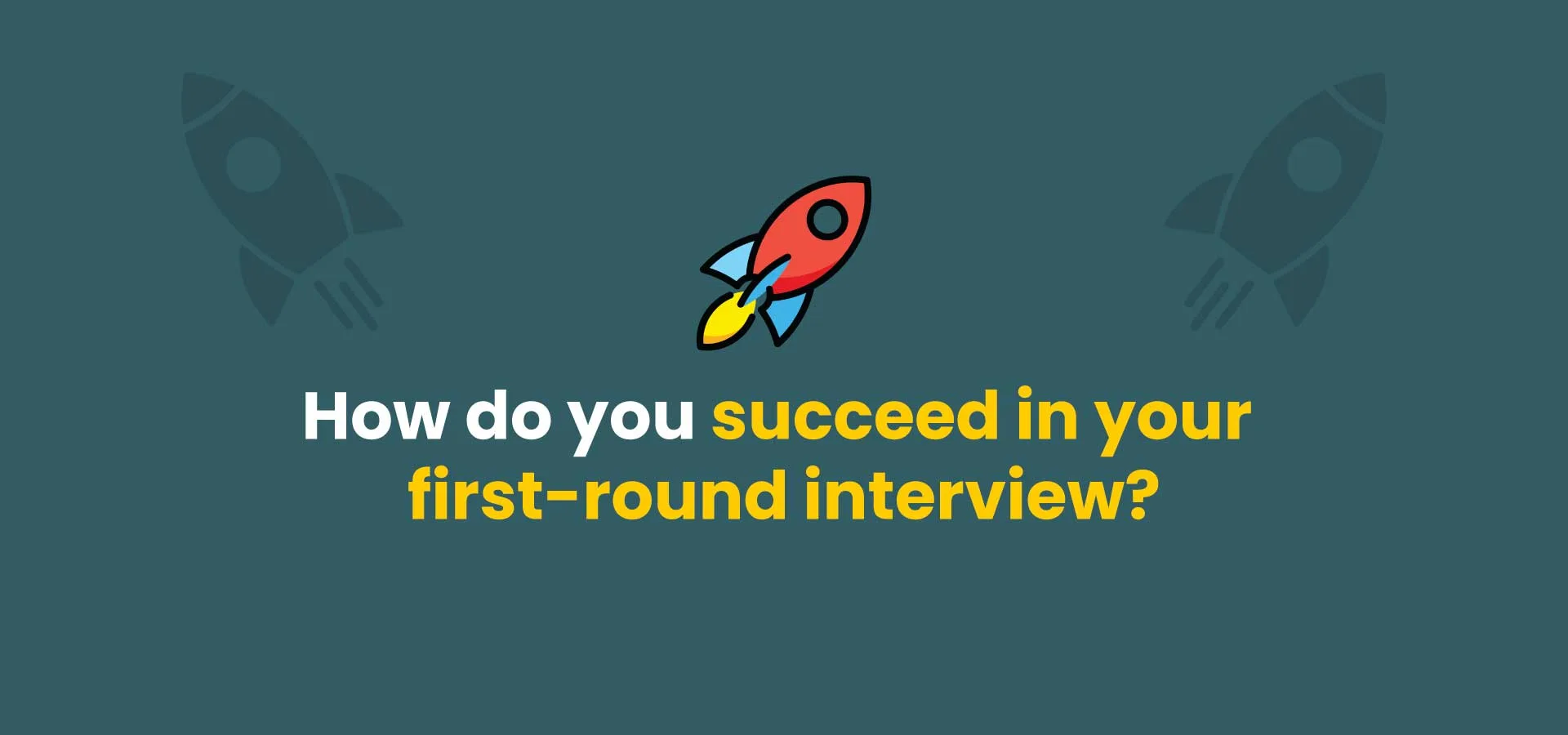How do you succeed in your first-round interview?
Hello, thanks for landing here. In the next few lines, you will learn how to handle the interviewer’s questions and provide the answers they want to hear to ace your next interview round.
Firstly, have you ever wondered what the interviewer is asking you when you receive a call for an interview? Here are some very common questions they ask:
- Hey Vikash, how are you?
- Okay, can you tell me about yourself?
- What is your current position, and what are your day-to-day responsibilities?
- Are you working with these software or tools?
- How soon can you join us?
- What is your current CTC, and what are your salary expectations?
- Where are you currently located?
- Are you willing to relocate?
- Well, I will get back to you soon, and thanks for the talk.
But, are they really asking these questions to evaluate your qualifications for the interview? I am saying a BIG “NO.” They mainly want to assess how well you communicate and how you handle these questions with your best answers.
You see, they already have these answers when they shortlist your resume, yet they ask the same things you’ve mentioned in your resume.
I’m sharing my own story here because I’ve successfully passed many first-round interviews, thanks to my confidence in my skills and *effective communication during these common Q&A sessions. Whenever I apply for a job, I make it a point to research the company to understand what it does.
During an interview, they primarily want to assess how well you can communicate and determine if you should proceed to the next round with the main hiring manager. This manager is interested in hiring someone with the right skill set within their budget.
If you don’t receive a callback after the first-round interview, it’s a good idea to consider that your communication may have been a weak point, or your salary expectations and skills might not align with the exact role they have in mind. Therefore, strong communication is crucial to succeeding in the first round of an interview.
*So, what does “effective communication” mean?
- Am I good at English? The answer is “NO.”
- Am I good at delivering what they want exactly? The answer is often “NO.”
This is just about confidence and a little bit of research and practice of these basic questions for the first round. I always keep myself prepared with these simple, basic questions, where I give 100% of myself in the language of communication they prefer, be it Hindi or English. I am showcasing my skill set that can match their requirements and can contribute effectively to their jobs in any way.
So, What are the main pointers that you need to understand properly and keep prepared for yourself?
- Research the Company
- Understand the Job
- Practice Common Questions
- Be Concise
- Tailor Your Responses
Note: Accept rejections, learn from them, and prepare for the next opportunity. Rejection doesn’t necessarily mean you lack qualifications; it may simply indicate that they are seeking a different fit or the best match.
That’s it, Let’s Rock! 🚀
Let me know in the comments if you find this article helpful, and you can also add your first round of questions in the comment box so that it will help others understand more if they read this article.
Stay Tuned,
Vikash J
